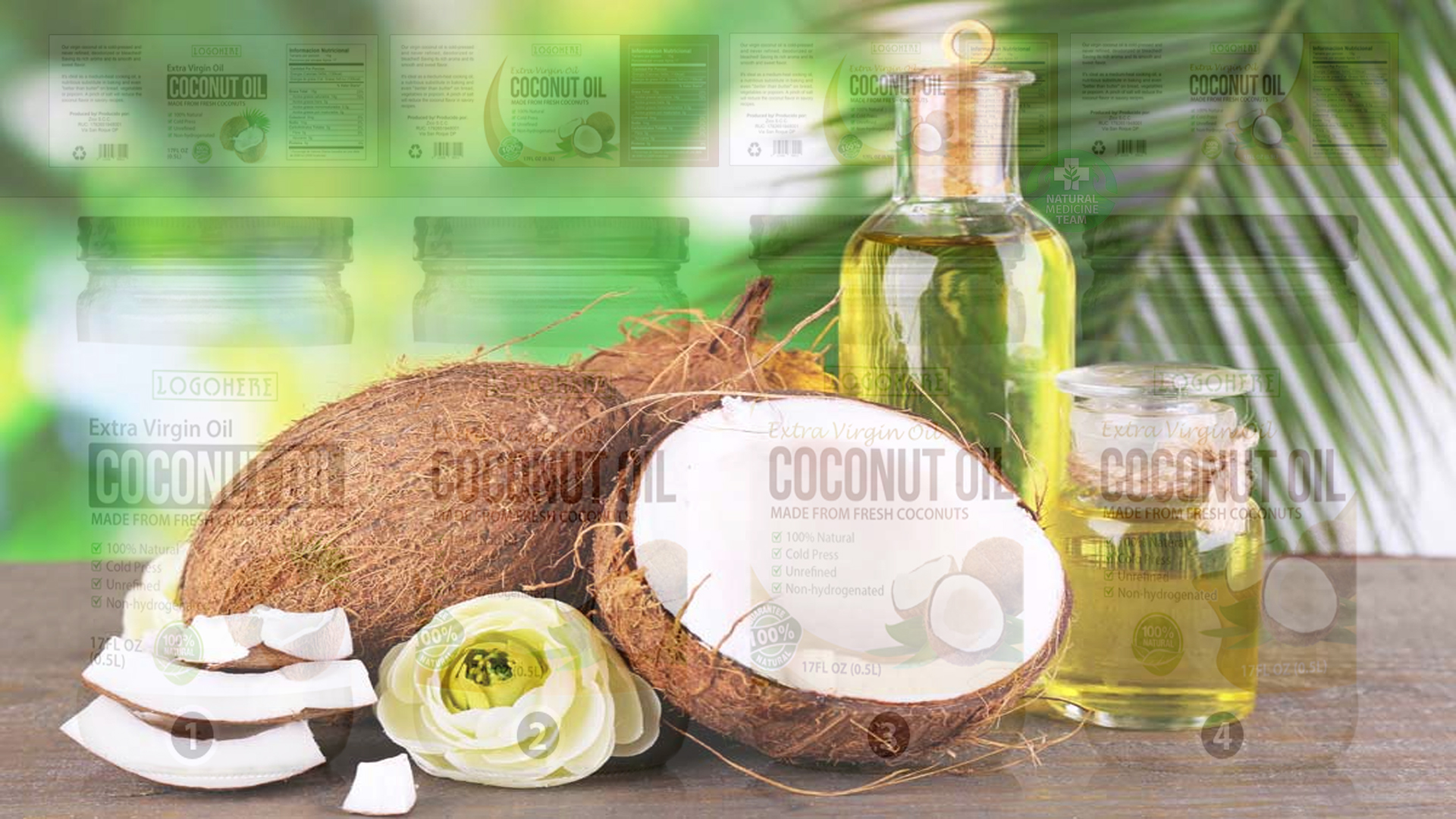There is an endless number of coconut oil brands and it is probably difficult for you to buy the best one. The question is which one is the healthiest and what do all of those labels really mean?! You need to understand what those terms mean in order to make the best decision.

-
Refined vs. Unrefined
Refined coconut oil is not the best type of oil to buy because it is processed at upwards of 400 degrees. That degrades the quality of the oil. Copra is the dried coconut meat and from there comes the coconut oil. In order to produce coconut oil, copra needs to be refined. Next, the coconut oil from copra needs to be purified with bleaching clays and the high temperatures are then used to deodorize the oil in order to remove its distinct odor and flavor.
Some brands use chemical solvents in order to obtain the most oil from the coconut meal. On the grocery store shelf, you will probably find refined coconut oils which are partially hydrogenated. That creates synthetic trans-fats which cause type 2 diabetes and increase LDL.
Unrefined coconut oil is also known as “virgin” coconut oil. By nature, coconut oil is refined because only coconuts grow on a tree, not the oil. The only truly unrefined coconut oil would come by directly consuming the oil from a fresh coconut. However, virgin coconut oil is always a good choice because it is extracted from fresh coconut meat which undergoes a quick drying or a wet milling process. The oil that results doesn’t need any additives or bleaching, and it is not exposed to high heat levels. Also, it keeps its distinct coconut flavor and odor.
-
Virgin vs. extra-virgin coconut oil
There are no regulations governing the purity of coconut oil, and terms like “virgin” and “extra-virgin” coconut oil generally mean the same thing. One is not better than the other, and in order to tell that you’ve got a properly pressed, unrefined oil is to use your nose. So, it probably is what you are looking for if it has a sweet coconut smell
Glass vs. plastic container
Remember to buy a coconut oil that comes in a sealed glass jar in order to avoid that plastic taste into the oil. Moreover, glass helps to lock in the nutrients. Buying your coconut oil in a plastic jug is not good for your health and it’s likely to have an odd taste.
-
Organic vs. non-organic
If the coconut oil has the USDA Organic label it means that the coconuts used to produce the oil were grown without the use of pesticides. Coconuts are far from the roots and experts claim that its unlikely pesticides will reach them. Also, they grow so high up and they are never sprayed with pesticides. There are no concerns about GMOs in the oil either because there are no genetically modified coconuts.
There is only a little evidence that organic coconut oil has more health benefits than the non-organic type. However, more people choose the organic type because the processing is more gentle and there are no pesticides, additives or chemicals in the finished product.
